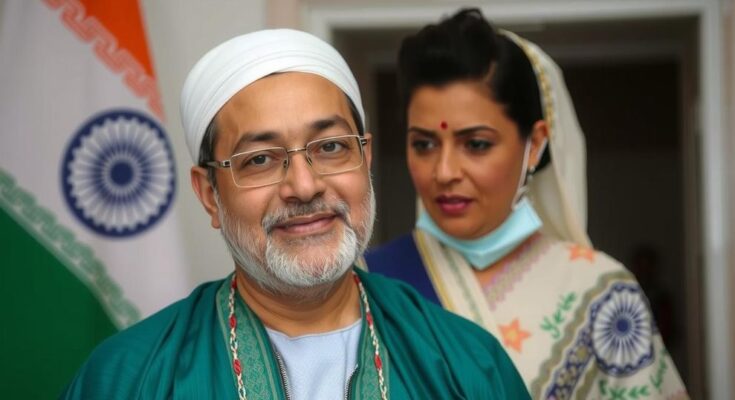Iran has offered to assist in the case of Nimisha Priya, an Indian nurse sentenced to death in Yemen for the 2017 murder of a Yemeni national. This offer highlights the complex dynamics of humanitarian assistance amid geopolitical tensions. While Iran seeks a humanitarian resolution, India is actively pursuing legal measures to support Priya, reflecting the intertwined nature of diplomatic relations and humanitarian concerns.
In a significant diplomatic gesture, Iran has offered humanitarian assistance regarding the case of Nimisha Priya, an Indian nurse sentenced to death in Yemen. This move highlights the intricacies of international relations and humanitarian concerns amid ongoing geopolitical tensions in the Middle East. Nimisha Priya, a trained nurse from Kerala, was sentenced to death by the Houthi-led authorities after being accused of murdering a Yemeni national, Talal Abdo Mahdi, under tragic circumstances of prolonged abuse and manipulation.
Nimisha Priya had opened a clinic in Yemen with Mahdi’s support, but their relationship deteriorated due to claims of harassment and exploitation. In a desperate attempt to reclaim her confiscated passport and escape the abusive situation, she sought to sedate Mahdi, resulting in his unintended death. Despite her assertions of acting in self-defense, she was arrested and subsequently sentenced to death by a Yemeni court, sparking significant international concern.
The Iranian government’s offer to intervene comes as a notable surprise, illustrating their humanitarian approach amidst diplomatic tensions. A senior Iranian official stated, “We will take up the issue of this nurse, we will do whatever we can,” reaffirming Tehran’s commitment to assist Nimisha Priya under humanitarian grounds. Given Iran’s considerable influence in Yemen, there exists potential for their involvement to secure clemency for the nurse, reflecting a broader diplomatic strategy that intertwines humanitarian efforts with regional political dynamics.
Meanwhile, the Indian government, through its Ministry of External Affairs (MEA), has acknowledged the situation and is pursuing all necessary measures to assist. MEA spokesperson Randhir Jaiswal remarked, “We are extending all possible help in the matter,” reinforcing the importance of family-led initiatives for legal recourse. Additionally, advocates such as the Save Nimisha Priya forum have called for direct negotiations with Yemeni authorities to prevent her execution, emphasizing the urgency of the situation.
Intriguingly, this offer from Iran coincides with a period of strengthening diplomatic ties between Iran and India, which has been reinforced over years of cultural and economic exchanges. High-level discussions are currently taking place in New Delhi, where Dr. Takht Ravanchi, Iran’s Deputy Minister of Foreign Affairs, is expected to address various topics, including the humanitarian implications of Nimisha Priya’s case.
As the situation unfolds, the collaboration of both Iran and India will be pivotal in securing a just resolution for Nimisha Priya. Iran’s humanitarian intervention introduces an additional layer of diplomatic complexity, emphasizing the critical role of international relations in facilitating humanitarian endeavors.
The case of Nimisha Priya, an Indian nurse sentenced to death in Yemen, raises important questions about international humanitarian intervention and diplomatic relations. Following years of alleged abuse by a Yemeni national, Priya’s desperate actions led to a tragic outcome, culminating in her death sentence. Iran’s recent offer to assist stems from its influence in Yemen and highlights the interplay between humanitarian concerns and regional politics. Concurrently, India’s active engagement in this matter showcases the diplomatic efforts being made to ensure the nurse’s safety and pursue legal avenues on her behalf.
In summary, the international attention surrounding Nimisha Priya’s death sentence has prompted a unique collaboration between Iran and India, focusing on humanitarian intervention. Iran’s willingness to assist, coupled with India’s diplomatic efforts, underscores the significance of leveraging international relationships to achieve humanitarian goals. This situation exemplifies the intricate balance between international diplomacy and the pursuit of justice in complex geopolitical landscapes.
Original Source: www.financialexpress.com




